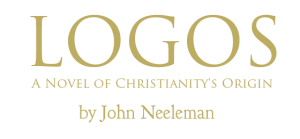 I had what is prosaically called a religious upbringing. In my family religion is bred in the bone. My parents are devout Mormons, and on my mother’s side mine is the seventh generation of Mormons, our ancestors among those who fled persecutors in Missouri and Illinois and crossed the American wilderness to settle in the New World’s “promised land,” imagining themselves to be latter day Hebrews. My paternal grandfather was the youngest child of a family that in the early twentieth century emigrated from the Netherlands to Salt Lake City after Mormon missionaries converted them. I was a Mormon missionary in Ecuador, and until my twenty second year, the course of the metaphysical dimension of my life seemed clear and certain.
I had what is prosaically called a religious upbringing. In my family religion is bred in the bone. My parents are devout Mormons, and on my mother’s side mine is the seventh generation of Mormons, our ancestors among those who fled persecutors in Missouri and Illinois and crossed the American wilderness to settle in the New World’s “promised land,” imagining themselves to be latter day Hebrews. My paternal grandfather was the youngest child of a family that in the early twentieth century emigrated from the Netherlands to Salt Lake City after Mormon missionaries converted them. I was a Mormon missionary in Ecuador, and until my twenty second year, the course of the metaphysical dimension of my life seemed clear and certain.
What changed that was college. It took me a while to settle on a major and a career goal, so I took a lot more classes than I needed for a diploma, including a bunch of science and history courses. Nothing can produce a more rapid deterioration of any dogmatic belief than the honest study of science and history. But for me the most enlightening part of college was the courses I took as part of my humanities major. Ironically, I learned from the poetry and fiction of Shakespeare, Hemingway, Melville, Twain, Keats, Blake et al. that life just doesn’t work the way my religion had taught me it did. Also, I came to appreciate that my college experience was a part of the process that began with the Renaissance and proceeded through Spinoza, the Enlightenment, the founding of our United States Republic and others, modernism, and so on, and that these movements have clashed with religion’s vested interests, and that my religion had been especially dedicated to reversing that wheel of progress. I came to understand that monotheism’s patriarchy was a contingent, accident of history, deeply harmful to girls and women in my family and Mormon girls and young women who were my friends.
I became a completely different person. As my hero Thomas Paine once wrote in reference to the journey that led him to challenge religious and monarchical authority on two continents, “We see with other eyes; we hear with other ears; and think with other thoughts, than those we formerly used. We can look back on our own prejudices, as if they had been the prejudices of other people.”
So, at twenty three I walked away from all that Mormon history. Well, I did and I didn’t. There’s a saying among Mormon faithful about apostates that “they can leave the Church but they can’t leave it alone.” Indeed, all those Mormon martyrs in Nauvoo, Illinois and Jackson County, Missouri, and Mormon pioneer graves in the former American wilderness, and all the wreckage of familial and other cherished personal relationships that apostasy from Mormonism inevitably wreaks make it impossible to just walk away.
So I tried to come to terms with my forsaken religious upbringing. I continued to find inspiration in that same canon that I had found so rewarding in college, increasingly reading works that were originally written in languages other than English, by Singer, Mann, Dostoevsky, Tolstoy and so on, along with works by postmodern masters such as Hilary Mantel, David Mitchell and Cormac McCarthy.
Eventually I turned to writing. Logos is my debut novel. I’m working on my second novel; the story is centered on Thomas Paine’s and Mary Wollstonecraft’s misadventures in France during the Reign of Terror.
My day job is as a trial lawyer in a Seattle high rise; I also represent indigent death row inmates in Texas and Louisiana pro bono.


